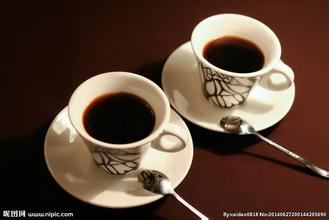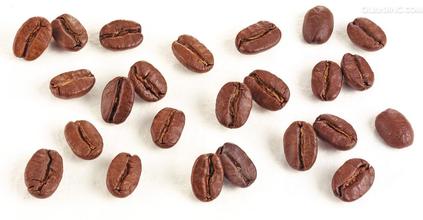What kind of environment is needed to grow coffee? what are the characteristics of coffee?
While the reputation of buying Blue Mountain Coffee as "King of Coffee" went viral, orders flew in like snowflakes, forcing Jamaica to speed up production. In 1932 alone, Jamaica produced 15.5 tons of coffee! One of the consequences of mass production is the decline in quality. The reputation of Jamaican coffee for nearly 30 years seems to have been destroyed overnight. Of course, the government and farmers want the coffee to return to its original high quality. But this requires strong financial support, and the government and farmers at that time simply did not have the ability to do so. To everyone's surprise, it was Japan, a country across the Pacific Ocean from Jamaica, that offered a loan to Jamaica in 1969 and bought all the Jamaican Blue Mountain Coffee, which had lost its reputation. Since then, Jamaica has begun to control coffee production and strictly stipulates that only coffee grown at an altitude of more than 2,000 meters above sea level is allowed to be labeled "Jamaican Blue Mountain". Not only that, they also set uniform rules on the size of coffee particles to ensure the taste of coffee. In order to distinguish the coffee from other coffee, the coffee from each farm after strict screening is packed into a sack for every 60 kilograms, and the sack must be put into the "quality guarantee" recognized by each farm. Sacks must also be put into special buckets when coffee is transported. Facts have proved that Japan's investment at that time was extremely correct and wise. Until now, Jamaica still gives priority to selling 90% of its first-class goods to Japan, while the remaining 10% is sold to countries around the world outside Japan. For example, Japan imported 688 tons of Jamaican Blue Mountain coffee in 1992, compared with 75 tons in the United States and 59 tons in the United Kingdom. You can imagine the shortage of Jamaican Blue Mountain Coffee! Due to low output and high quality, no matter how high the price, Jamaican Blue Mountain coffee is always in short supply! In this way, Jamaica Blue Mountain regained its noble identity. Its high price complements the reputation of "King of Coffee" and has countless followers! Coffee is marked with the word "JBM", which is the abbreviation of "Jamaica Blue Mountain Coffee". But the real "Blue Mountain Coffee" is only a small piece of land with an area of 6000 hectares. Therefore, many coffees marked "Blue Mountain Coffee" are actually "Alpine Coffee" or "excellent washing Coffee"-which changes the name of "Blue Mountain" from a place of origin to a coffee grade, which is difficult for us to tell. The probability of buying absolutely pure, top-notch Jamaican Blue Mountain coffee in a department store is almost zero! The most common variety is the specious "Jamaican Blue Mountain", which grows in the low mountains of Jamaica and is mainly sold within Jamaica and mixed with coffee beans from other countries. Like this kind of mixed coffee, even if the salesperson says it has very good top Jamaican coffee beans, the proportion is only about 5%! Products like this

Important Notice :
前街咖啡 FrontStreet Coffee has moved to new addredd:
FrontStreet Coffee Address: 315,Donghua East Road,GuangZhou
Tel:020 38364473
- Prev

Which country is the largest coffee farm and which is the most famous?
Kilimanjaro in Tanzania. A variety of coffee without acid, with a strong taste and is famous for its duet taste. Exquisite coffee elegant guest, want to feel exotic flavor, boil your taste. Tasting Kilimanjaro coffee is the best choice, the aroma and taste are enough to make the first-time coffee drinkers feel the endless taste of duet. (11) Kona Coffee: from Hawaii
- Next

Panamanian Emerald Manor Esmeralda Manor
Panamanian Emerald Manor Panamanian Emerald Manor-Esmeralda Manor (Panama Geisha Hacienda La Esmeralda) in its early years, Esmeralda Manor mostly followed Japan in its recognition of top coffee, while Geisha, with its hurricane-like power, swept through the coffee industry, and the coffee revolution was so fierce that it made the Blue Mountains of Jamaica, which had occupied the throne of the coffee kingdom for a long time.
Related
- Does Rose Summer choose Blue, Green or Red? Detailed explanation of Rose Summer Coffee plots and Classification in Panamanian Jade Manor
- What is the difference between the origin, producing area, processing plant, cooperative and manor of coffee beans?
- How fine does the espresso powder fit? how to grind the espresso?
- Sca coffee roasting degree color card coffee roasting degree 8 roasting color values what do you mean?
- The practice of lattes: how to make lattes at home
- Introduction to Indonesian Fine Coffee beans-- Java Coffee producing area of Indonesian Arabica Coffee
- How much will the flavor of light and medium roasted rose summer be expressed? What baking level is rose summer suitable for?
- Introduction to the characteristics of washing, sun-drying or wet-planing coffee commonly used in Mantenin, Indonesia
- Price characteristics of Arabica Coffee Bean Starbucks introduction to Manning Coffee Bean Taste producing area Variety Manor
- What is the authentic Yega flavor? What are the flavor characteristics of the really excellent Yejasuffi coffee beans?

